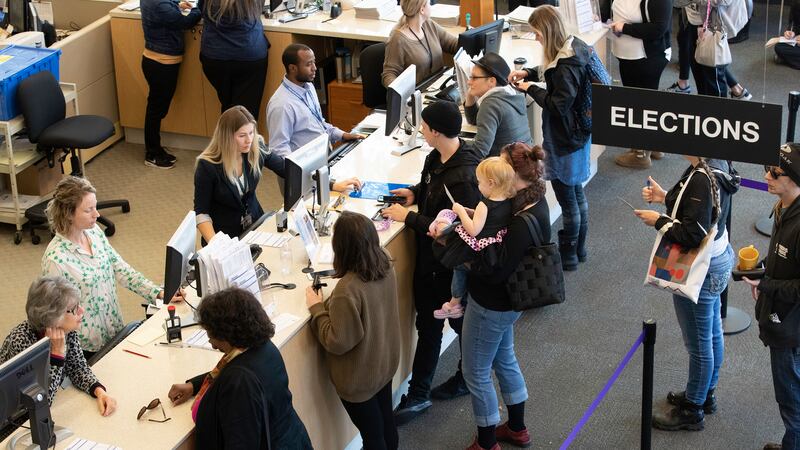The 150-member central committee of the Democratic Party of Oregon will meet this weekend at Portland Community College's Sylvania campus to address a hot-button issue—whether the party should open its 2020 primary to non-affiliated voters.
It's a contentious question within the central committee and bound to generate a lot of heat on Sunday.
Last spring, DPO chair KC Hanson asked state Sen. Lew Frederick (D-Portland) to lead a small committee that would examine the question of whether to open the primary next year.
In a Nov. 13 email to DPO central committee members, Frederick said his committee had voted 5 to 3, with one absence, against recommending opening the party's primary.
Here's a list of pros and cons Frederick's committee compiled.
Oregon is currently one of just nine states that have closed primaries, i.e. in which one must be registered as a Democrat or Republican to vote in either party's taxpayer-funded primary. Moderates in both parties have pushed to open the primaries without much success: The last such effort, Measure 90 in 2014, failed by a 68 percent to 32 percent margin.
But thanks to Oregon's "motor voter" registration system, which automatically registers voters anytime they obtain or renew drivers licenses, the number of Oregonians registered to vote has risen dramatically, with much of the increase in voters who are not affiliated with any political party.
The motor voter law went into effect Jan. 1 2016. Here's what registration looked like then:
834,000 Democrats; 645,000 Republicans; 529,000 non-affiliated. Total 2.18 million
Here's what registration is today:
975,000 Democrats; 949,000 non-affiliated; 703,000 Republicans. Total 2.81 million.
So of the 630,000 new registrations since motor voter went into effect 420,000 of them—fully two-thirds—have not registered with any party.
The meeting on Sunday is at 1:15 at the Sylvania campus CC and SS buildings.
Updated Nov. 20: The motion to open the Democratic primary required a two-thirds majority to pass, according to DPO spokeswoman Molly Woon. In the end, Woon says, the failed, with 55 voting for it and 76 against.
